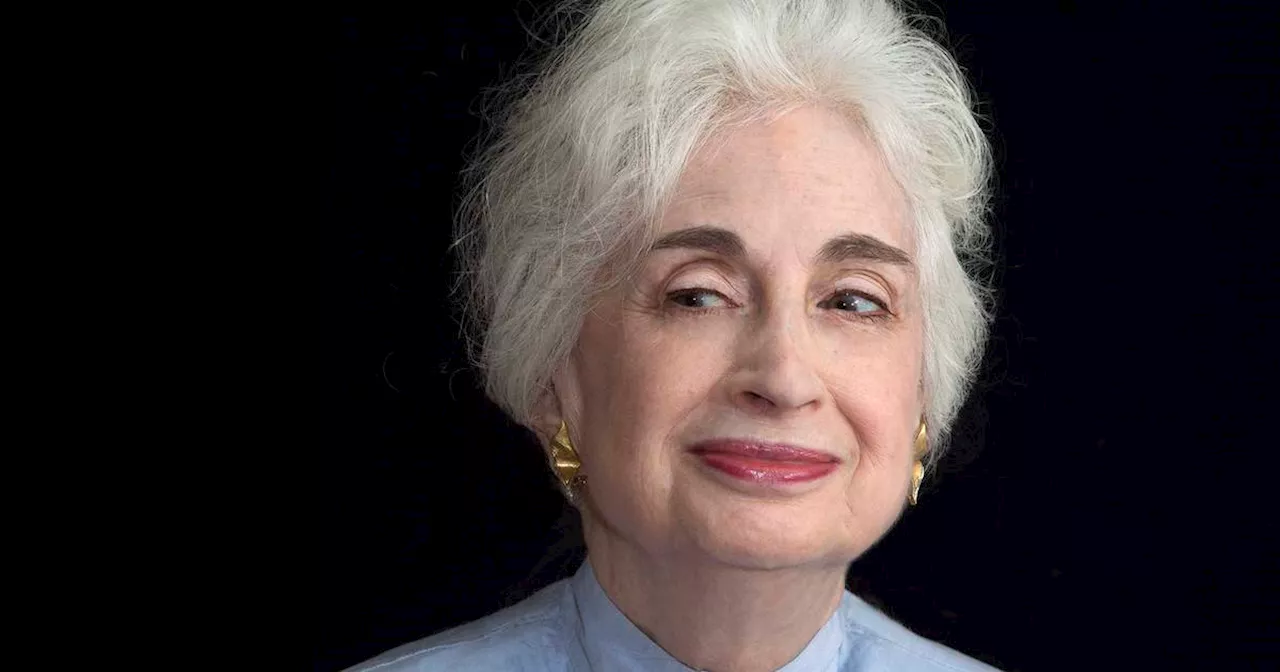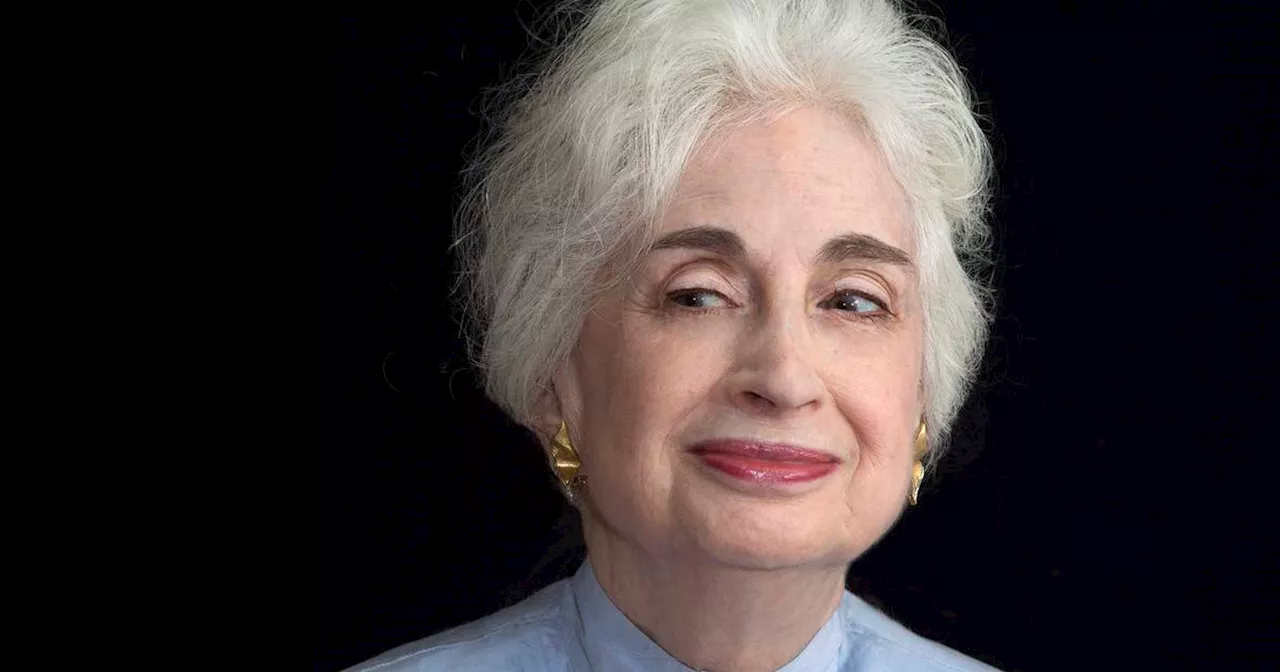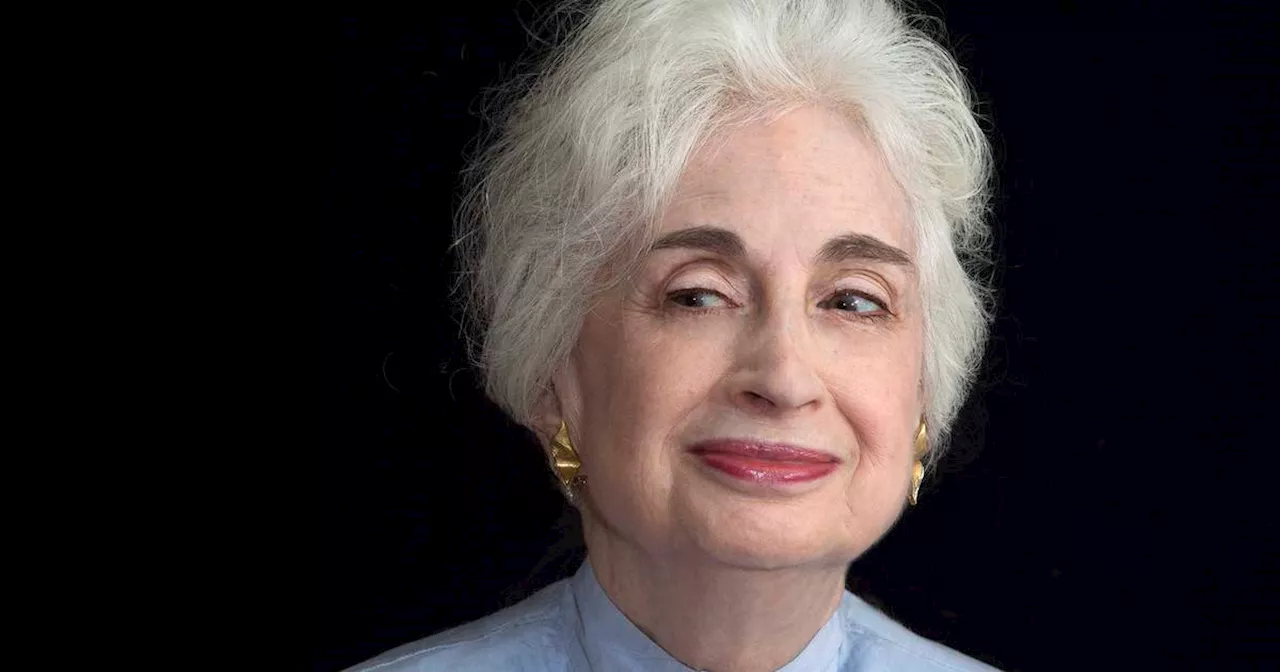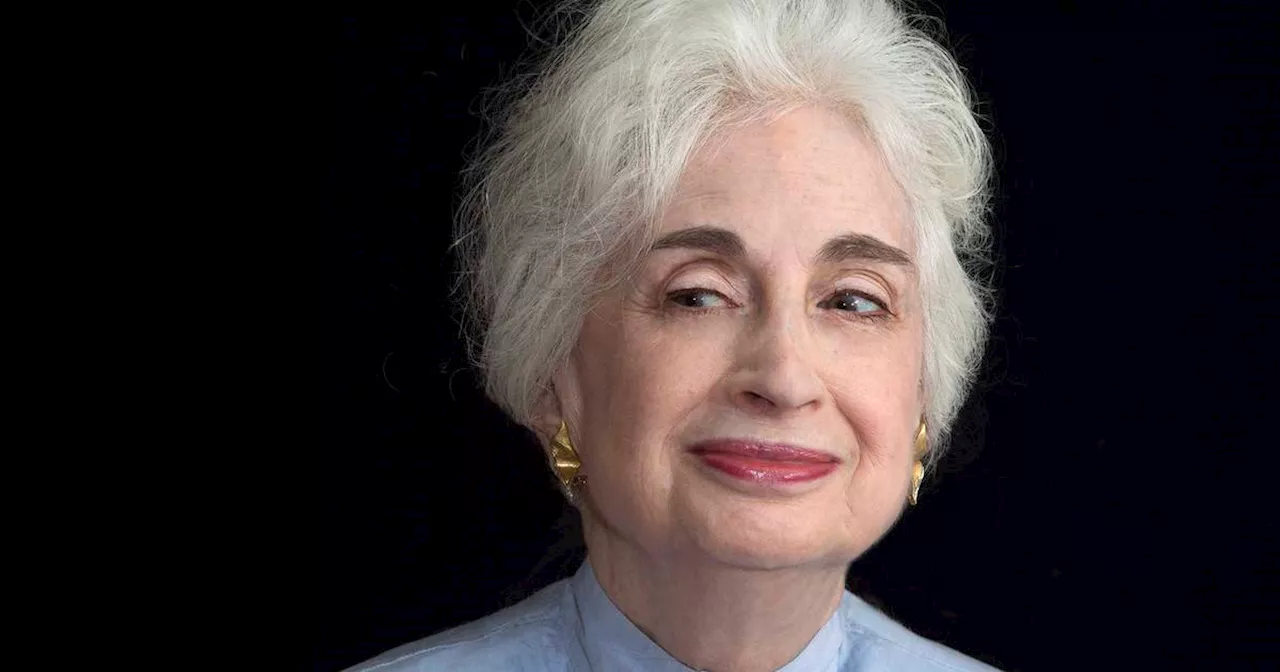In her new book, 'With My Back to the World,' Victoria Chang finds herself exploring loss and language in the paintings of Agnes Martin.
. I’m a cheap date—pitifully drawn to the figurative, and, until now, sort of alienated by Martin’s abstract assemblages of lines, bands, stripes, and grids. Recently, I confessed as much to the poet Victoria Chang, whose seventh collection,, is a dialogue toward Martin’s life and art, as well as a meditation on solitude, loneliness, depression, and spectacle.
CHANG: I love the origin stories of any creative project. And I love thinking about how people start different series. That is fascinating to me. The MoMA asked me to write a poem on anything in their whole museum. I tried looking around on their site, but I just got overwhelmed, and so then I reversed my thinking and thought, well, “What artists would be interesting?” I had read Agnes Martin’s writings a long time ago. It’s a book that’s really hard to find.
HOOD: I think that’s what drew me to writing. And it’s true for so many artists, this connection to art that almost supersedes or supplants the social. Importantly, this is also a book about depression. At times you’re talking about solitude and loneliness as separate things, and sometimes they become conflated with and bound up in this depressive feeling. You mentioned that, at times, you connect with art more than you do with people.
CHANG: And in fact, maybe not knowing is a form of knowing. I was just talking to my friend about this yesterday. He said, “I’m really not sure poetry is always the best place for certainty or righteousness.” And I was like, “I totally agree.” I think poetry and art are navigating the unknown and the inadequacies of knowledge. It’s the opposite of knowledge. It’s not knowing what you’re going to say before you say it, it’s not knowing where you’re going to arrive when you’re done.
HOOD: In your poem “Today,” you write, “I heard my own voice describing my fall onto a knob, how I lost my left eye, how I refused to die. And then I saw myself bend over to look at me. My own hand grabbed my hand, but I couldn’t feel it or move my eye. I saw myself for who I was; evil, full of syllables. Poets are useless.” That last bit–”poets are useless”–is borrowed from H.D.’s experimental epicHer reading, I think, is couched in irony, but yours feels more earnest, and also more resigned.
United Kingdom Latest News, United Kingdom Headlines
Similar News:You can also read news stories similar to this one that we have collected from other news sources.
 Miss Manners: Is it OK to wear something other than black to a funeral?Advice from Judith Martin, Nicholas Ivor Martin and Jacobina Martin.
Miss Manners: Is it OK to wear something other than black to a funeral?Advice from Judith Martin, Nicholas Ivor Martin and Jacobina Martin.
Read more »
 Miss Manners: ‘Keep your hands off her!’ What’s going on with my friend?Advice from Judith Martin, Nicholas Ivor Martin and Jacobina Martin.
Miss Manners: ‘Keep your hands off her!’ What’s going on with my friend?Advice from Judith Martin, Nicholas Ivor Martin and Jacobina Martin.
Read more »
 Miss Manners: I have stage 4 cancer and the prognosis is grim. What do I say when someone tells me, ‘You’re going to beat this’?Advice from Judith Martin, Nicholas Ivor Martin and Jacobina Martin.
Miss Manners: I have stage 4 cancer and the prognosis is grim. What do I say when someone tells me, ‘You’re going to beat this’?Advice from Judith Martin, Nicholas Ivor Martin and Jacobina Martin.
Read more »
 Miss Manners: How can I stop myself from referring to my co-workers as ‘girls’?Advice from Judith Martin, Nicholas Ivor Martin and Jacobina Martin.
Miss Manners: How can I stop myself from referring to my co-workers as ‘girls’?Advice from Judith Martin, Nicholas Ivor Martin and Jacobina Martin.
Read more »
 Miss Manners: If someone doesn’t respond to an invitation, how long should I wait before inviting someone else?Advice from Judith Martin, Nicholas Ivor Martin and Jacobina Martin.
Miss Manners: If someone doesn’t respond to an invitation, how long should I wait before inviting someone else?Advice from Judith Martin, Nicholas Ivor Martin and Jacobina Martin.
Read more »
 Miss Manners: When is a compliment an insult?Advice from Judith Martin, Nicholas Ivor Martin and Jacobina Martin.
Miss Manners: When is a compliment an insult?Advice from Judith Martin, Nicholas Ivor Martin and Jacobina Martin.
Read more »
